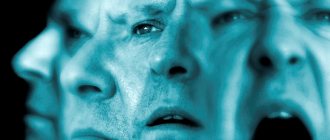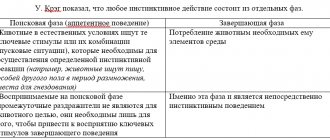The word “phobia” is known to everyone nowadays. This is a pathology that manifests itself in the form of fear of a certain object, event, creature, etc. All people are afraid of something to one degree or another. In most cases, this is normal, because if there were no elementary fear, people would lack the instinct of self-preservation. But if a feeling of anxiety does not allow you to live in peace, forcing you to focus on the problem, we are talking about a pathology that certainly needs to be treated. In psychiatry, there are many types of fear. They all arise for different reasons and are also treated differently. Consider a list of all human phobias and their meaning.
Causes and symptoms
Experts cannot name the only reason that causes phobias, but, as a rule, this is an echo of negative childhood experiences. However, an adult can also find himself in a situation that leaves a significant imprint on the psyche. Often people simply forget that bad things happened to them before, but for some adults they emerge in the subconscious - the connection between the incident and the emotions experienced is deposited in it.
There is an opinion that obsessive fear can be inherited and “triggered” after stress. A heightened instinct of self-preservation also contributes to the emergence of phobias.
As for the signs of this mental disorder, they are as follows:
1. The desire to avoid the situation causing the phobia by any means.
2. Feeling of a lump in the throat, inability to breathe.
3. The whole body is shaking.
4. Rapid heartbeat - the heart literally “breaks out” of the chest.
5. The appearance of sticky cold sweat.
6. Weakness in the body, it stops listening, immobilization.
7. Terrible fear.
8. The stomach hurts, there may be loose stools, vomiting.
Diagnosis of the pathological process
Diagnosis is not particularly difficult. Examination methods include:
- Oral survey. The psychologist talks with the patient, finds out his motives, characteristics of behavior and thinking. In the format of a simple conversation you can get a lot of information, which is what a specialist uses.
- Carrying out special tests. In particular, questionnaires are used to assess the level of anxiety and study the likelihood and degree of depression. The Luscher and Rorschach tests have worked well. Only a psychologist or specialized psychotherapy specialist can interpret the results.
Basically, this is enough. It is also necessary to identify the causes of the pathological condition. This may require more than one therapy session.
Then comes the treatment, and this is the hardest part.
What it is?
The existence of humanity has always been associated with the need to protect against possible danger, therefore nature itself has created a safety mechanism in us that allows us to warn in time about a threat to life or health.
We are talking about the emotion of anxiety and the feeling of fear, which characterize the emotional sphere of a person at a time of real danger.
Phobias are phenomena of a different order. Here, fear is characterized by its persistence, obsession and unreasonability, intensifies when meeting the object of fear , often turning into an uncontrollable state.
Emphatically irrational, fear in anxiety-phobic disorder, as a rule, has no basis - it is not required either for survival or for preventing risks and threats. At the same time, the danger in the human mind multiplies many times over; even harmless phenomena (objects, events) can be elevated to the rank of a threat to life.
Adequacy, rationality and logic, like other cognitive characteristics of the thought process, are simply absent. Experiences so captivate the mind that a person becomes capable of committing the most stupid and inexplicable acts.
This explains the strangest phobias that arise in people: fear of bald people - peladophobia, or fear of bearded people - pogonophobia, mirrors - eisoptrophobia, aquariums - ichthyolaccophobia, antiques - anticophobia, etc.
Moreover, people cannot specify what directly causes such strong fear.











